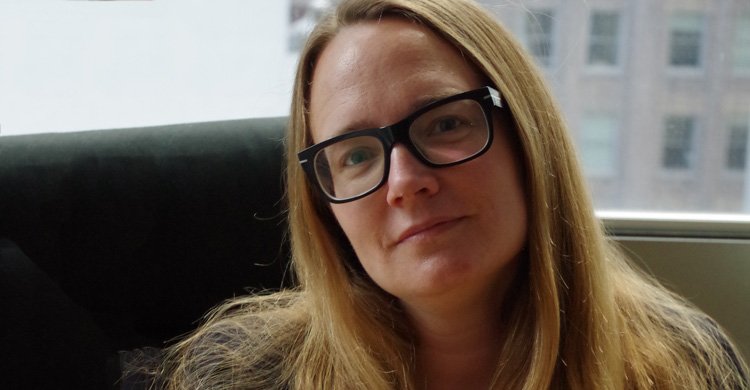Professor Researches Inequality in PTA Meetings

Andrea Voyer believes that inequality is the most important concern of our times.
Her interest in inequality is rooted in personal experiences. As a working-class New Englander, Voyer won a National Merit Scholarship and entered the privileged, elite world of the University of Chicago.
“In early freshman year, my classmates were discussing the graduate schools their parents had attended or that they planned to attend. I eventually mustered the courage to ask what graduate school was. I will never forget that embarrassing and sickening feeling of ignorance and uncertainty,” she said.
Voyer, now an assistant sociology professor at UConn, is researching inequality from a scientific standpoint. In her latest project, she is analyzing how people from very different socio-economic backgrounds come together and interact in democratic, egalitarian settings, like school PTAs and community groups.
The project is funded by a $149,016 philanthropic grant from the Russell Sage Foundation, a New York group that funds research in the social sciences.
She has spent the last 18 months studying three groups: the PTA of a public school in Manhattan, the members of a Harlem church, and the participants in a community neighborhood board in Queens.
Voyer has been observing each group’s dynamics and behavior from a social scientist’s perspective to see who has the power to set the group’s agenda, who gets their questions answered, who has the most influence in the groups, and who gets ignored.
“I am hoping to discover the practices that support the development of true egalitarian, democratic participation in the face of what we know to be tremendous social inequality in the U.S.,” she said. “We’re at our most unequal point since before the Great Depression. How does an organization successfully make sure that everyone has access to participation, that everyone is being heard?”
While her research is ongoing, she already has discovered that some of the barriers boil down to something as simple as where you sit during a meeting and whether you are willing to interrupt.
“Look at the people who sit in the front three rows. They are the ones who are interrupting and they’re getting heard,” she said. “The people in the back, first of all, can’t hear what’s going on. And they are waiting to get called on, so they are never being heard. Maybe the solution is to have a mic, and people have to line up to talk at the mic. Or maybe you close off the back of the room so people have to sit in the front. These seem really silly and obvious, but they are actually impactful practices.”
Voyer will spend the next school year at the Russell Sage Foundation in New York writing about her findings in an academic book as well as articles, op-ed pieces and, perhaps, a video. She is thinking about making a YouTube video to explain, for example, what a PTA is, how to get involved, where you should sit at meetings, and how to ask a question and be heard.
The project is New York-based because she began the research while she was still a professor at Pace University in New York before she joined the UConn faculty last fall. Her husband, Jason Czarnezki, is a law professor at Pace, and they have two children, ages 9 and 11.
In addition to the New York project, she is researching all of Emily Post’s Etiquette books to determine how manners historically have helped Americans deal with class relations. The first step in the project will be a digital analysis of each of the 19 heavy volumes. She has discovered that Post cast the nouveau riche as the villain in her first volume that dates back to 1921.
“She talks about how they crook their little finger when they drink their tea,” Voyer said. “She spends a lot of time on the particular words that they mispronounce.”
Raised on Peaks Island, Me., Voyer initially studied Russian history and Russian literature at the University of Chicago and earned her doctorate at the University of Wisconsin-Madison. Before coming to UConn, she was an assistant professor of sociology at Pace.
For Voyer, inequality will always be a source of fascination and continue to drive her quest to overcome barriers to a more free and equal world.
